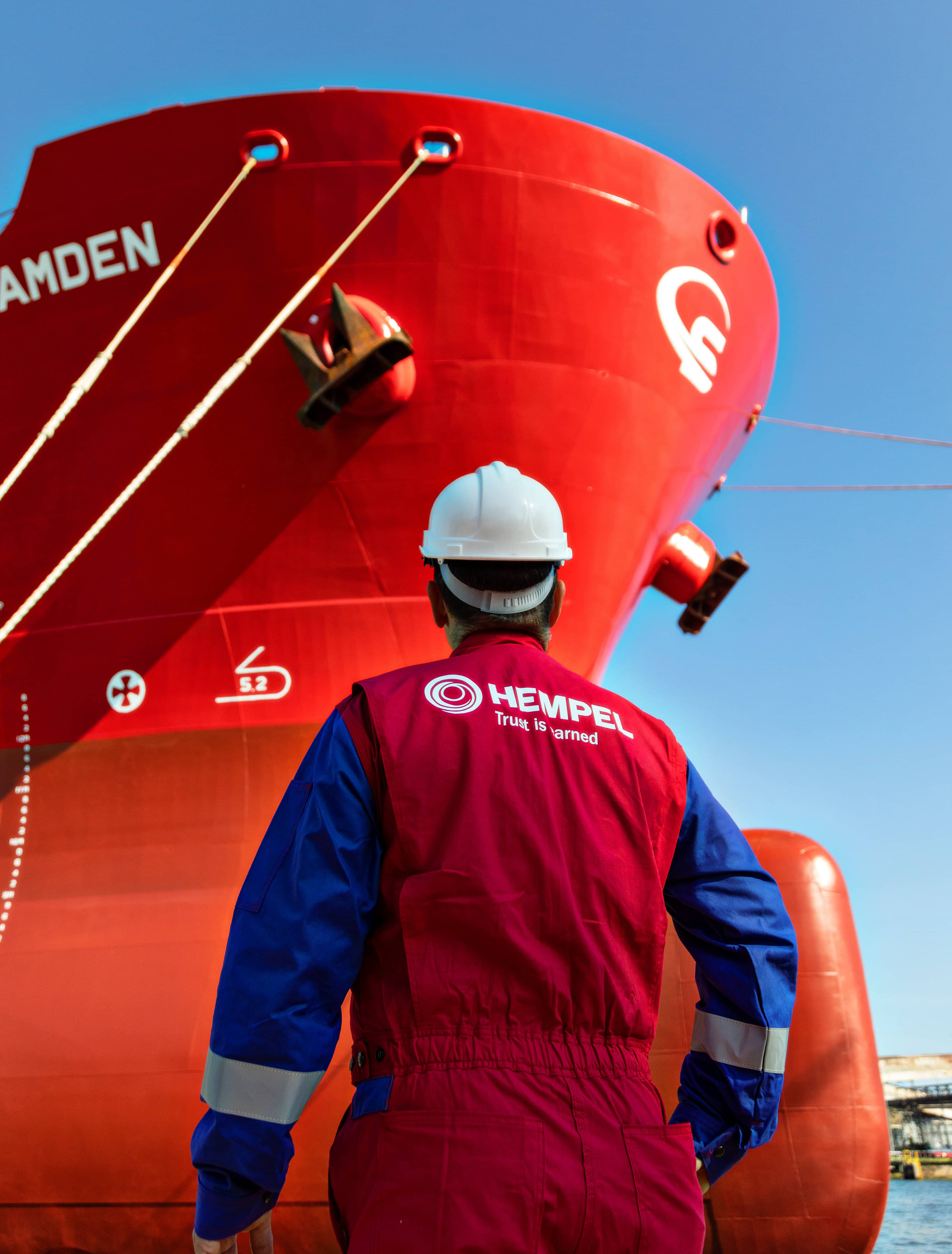Accelerating maritime energy efficiency with Hempaguard Ultima
In connection with the launch of Hempel’s groundbreaking new silicone hull coating system, Hempaguard Ultima, Protective Coatings Expert met up with Alexander Enström, Executive Vice President and Head of Marine at Hempel A/S, to talk about why he believes that this is one of Hempel’s most significant innovations to date.

Alexander Enström
Q. Hi Alexander, and thank you for taking the time to meet with us. Before we dive into your new product, let’s briefly set the scene. In your experience, what are currently some of the major pain points of Hempel’s customers in the maritime industry?
A. Hi Mark, and thanks for having me. I’m very excited to talk about Hempaguard Ultima – and one of the reasons for this, to your point, is actually because of our customers and what we know this product will be able to do for them – superior performance and up to 21% in fuel savings, among other things.
There is no doubt that it has been a volatile year for the maritime industry however, and we see a consistent focus from our customers on improving performance and accelerating the sustainability journey of the industry as a whole. In the media, we see a lot of discussions about, and focus on, the green fuels that will help improve the sustainability profiles of vessels in the future, but the reality is that improving energy efficiency is what will make a difference here and now. Even when we have the infrastructure and more widespread adoption of green fuels, the availability and cost will require shipowners and operators to be as vigilant about performance and energy efficiency as ever.
Q. So how do coatings fit into this focus from customers?
A. Shipowners and operators have a myriad of options to choose from when it comes to the energy efficiency of their ships. But of all the technology available, silicone hull coatings come out on top. Silicone hull coatings are the lowest-hanging fruit for the shipping industry to accelerate decarbonisation. In general, every ship has to come in to drydock for a new coat of paint every five years, so this isn’t a new add-on technology they have to go out and acquire, and it requires no retro-fitting of ships.
Q. What makes Hempel’s coating solutions unique compared to other hull coatings currently on the market?
A. Hempel’s silicone hull coating for the maritime industry, Hempaguard, was launched in 2013, so we have more than 10 years’ experience with a market-leading premium antifouling based on silicone technology. It has been applied more than 4,000 times and, recently, its performance when it comes to the reduction of CO2 emissions and fuel performance has been third-party verified and validated by DNV.
We are, however, always looking for ways to optimise our products for our customers, and that is why we are launching the next generation of silicone hull coatings: Hempaguard Ultima. It has been designed to safeguard vessels from fouling with a unique two-layer system, enabling our customers to reach their sustainability objectives while also achieving operational excellence. Hempaguard Ultima combines the proven performance of Hempaguard X7 with our revolutionary new biocide-free silicone topcoat, Hempaguard XL.
Q. How does this new solution contribute to the maritime industry’s decarbonisation efforts?Decarbonisation in the maritime industry is a complex challenge that requires multiple strategies, and Hempaguard Ultima plays a crucial role in this effort. With Hempaguard Ultima, a vessel’s hull is able to achieve a more stable surface smoothness, even into the fourth or fifth year of the docking cycle. This reduces the risk of fouling after long service periods, even when the coating’s hydrogel and biocide can start losing some effectiveness. By reducing hull drag, the coating directly lowers fuel consumption, which is one of the largest sources of carbon emissions in shipping. Over time, the cumulative effect of reduced fuel use across a fleet can lead to significant reductions in greenhouse gas emissions. Moreover, improved performance can help ship operators meet increasingly stringent regulations on emissions, such as those set by the International Maritime Organization (IMO), thereby supporting global climate goals.
Q. What are the potential cost savings and operational benefits that shipowners and operators can expect from using this new coating?
A. They can expect substantial cost savings from Hempaguard Ultima, due to its ability to improve fuel efficiency. With reduced drag, vessels require less power to maintain cruising speed, leading to lower fuel consumption. As I previously mentioned, Hempaguard Ultima enables 21% in fuel savings, but also a minimal speed loss of 0.9% and 6% out-of-dock speed increase.
Over the lifespan of the coating, these savings can be significant, especially for vessels on long-haul routes. Additionally, the prolonged smoothness of the hull means less frequent maintenance and fewer drydockings, further reducing operational costs and minimising downtime. This combination of efficiency, durability and environmental compliance makes Hempaguard Ultima a valuable investment for shipowners looking to enhance performance while also supporting their sustainability commitments.
More articles like this can be found in the latest issue of Protective Coatings Expert

Hempel’s new groundbreaking silicone hull coating system, Hempaguard Ultima

